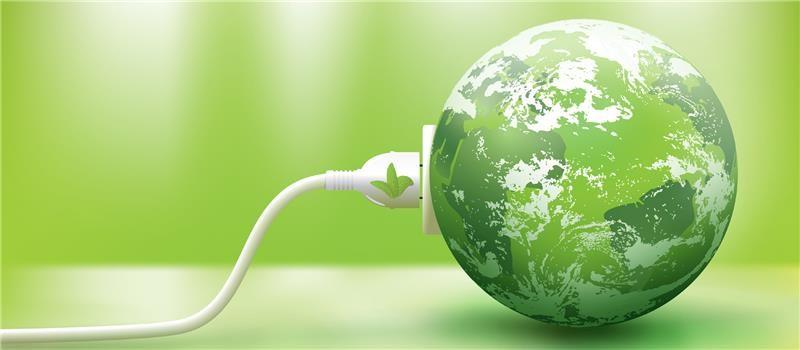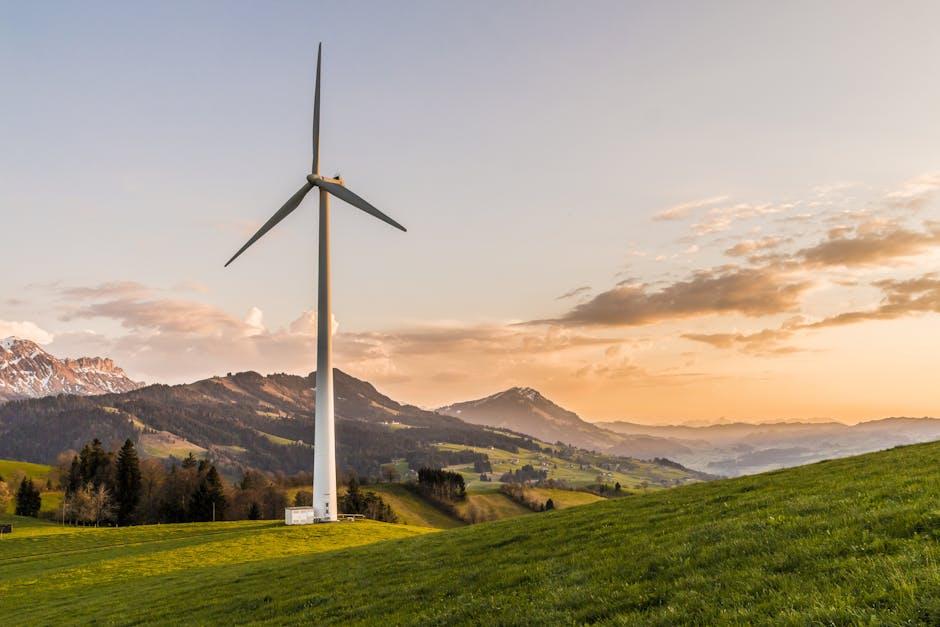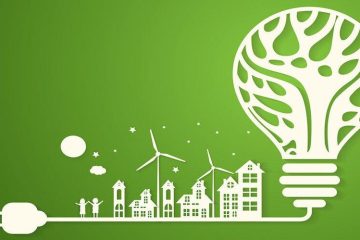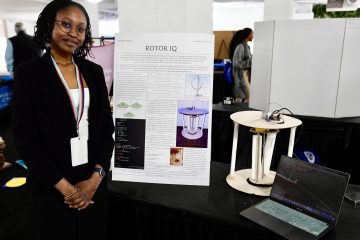Table of Contents
- Understanding the Role of an Energy Efficiency Consultant
- Key Benefits of Hiring an Energy Efficiency Consultant
- Effective Strategies Employed by Energy Efficiency Consultants
- How Energy Efficiency Consultants Assess and Improve Energy Usage
- Choosing the Right Energy Efficiency Consultant for Your Needs
- Q&A
- Insights and Conclusions
Understanding the Role of an Energy Efficiency Consultant
In the quest for sustainability and cost-effectiveness, businesses are increasingly turning to professionals who specialize in optimizing energy usage. An energy efficiency consultant plays a pivotal role in assessing and enhancing the energy performance of buildings, industrial operations, and various systems. These consultants start by conducting detailed energy audits, utilizing advanced tools to identify areas of improvement. By analyzing energy consumption patterns, they develop strategies to reduce wasteful practices and recommend the adoption of energy-saving technologies. Their expertise helps clients not only diminish their carbon footprint but also achieve significant cost savings.
Energy efficiency consultants possess a vast array of skills and knowledge, bridging the gap between technical engineering and holistic environmental insight. They work closely with stakeholders to tailor solutions that meet regulatory standards and sustainability goals. Key responsibilities of these consultants often include:
- Energy Audits: Evaluating energy use with precision to identify inefficiencies.
- Strategic Planning: Designing plans for reducing energy consumption while maintaining operational integrity.
- Implementation Support: Assisting in the adoption of new technologies and practices.
- Monitoring & Reporting: Establishing measurement frameworks to track progress and savings.
Consultants also harness their expertise to leverage incentives and rebates available for energy-efficient upgrades, thus enhancing the return on investment for their clients. Here’s a brief overview of potential incentives:
| Type of Incentive | Description |
|---|---|
| Tax Credits | Offers reductions on taxable income for specific energy upgrades. |
| Grants | Non-repayable funds to support large-scale efficiency projects. |
| Rebates | Cash returns on purchases of energy-efficient products. |
This strategic alliance between businesses and consultants cultivates a culture of sustainability, pioneering pathways for more resilient and energy-conscious enterprises.


Key Benefits of Hiring an Energy Efficiency Consultant
Engaging an energy efficiency consultant can bring a myriad of advantages to your business or home. One of the primary benefits is that they help identify specific energy-saving opportunities tailored to your unique circumstances. By conducting thorough assessments of your energy usage, consultants can pinpoint areas where energy is wasted and suggest practical solutions. This targeted approach not only curtails energy waste but also significantly reduces utility bills, contributing to a more sustainable bottom line.
Another notable advantage is their expertise in navigating complex energy-related incentives and regulations. Many governments and utility companies offer rebates, incentives, or tax deductions for implementing energy-saving measures. Consultants are well-versed in these programs and can guide you through the application process, ensuring you receive the maximum benefits available. They can also help you keep abreast of changing regulations so your energy systems remain compliant. This expertise means less hassle for you and more focus on running your business effectively.
energy efficiency consultants bring a wealth of knowledge in innovative technologies and best practices. They stay updated with the latest advancements in energy-saving technologies such as smart thermostats, efficient lighting systems, and renewable energy solutions. By integrating these cutting-edge technologies, you can enhance your property’s energy efficiency. In addition, consultants offer valuable training to staff or occupants on how to maintain energy-efficient practices day-to-day, ensuring sustained energy performance improvements over time.


Effective Strategies Employed by Energy Efficiency Consultants
Energy efficiency consultants are adept at conducting comprehensive audits to identify areas where energy consumption can be minimized. They employ advanced diagnostic tools and techniques to measure and analyze energy usage patterns. By scrutinizing utility bills, inspecting HVAC systems, and evaluating lighting, they pinpoint inefficiencies and propose tailored solutions. These solutions often include upgrading to more energy-efficient appliances, improving insulation, and recommending behavior changes for better energy conservation. Through meticulous analysis, consultants develop actionable strategies that not only reduce energy usage but also lower costs.
- Customized Energy Plans: Consultants create bespoke energy-saving plans tailored to specific needs.
- Technological Integration: They suggest incorporating smart technologies like thermostats and energy management software to monitor consumption effectively.
- Regulatory Compliance: Ensuring businesses meet all energy-related regulations and standards is a critical aspect of their role.
Another crucial strategy involves leveraging financial incentives and rebates to offset the cost of implementing energy-efficient measures. Consultants expertly navigate the various programs available to maximize financial benefits. They guide companies through the application process for federal, state, and local incentives. Moreover, consultants often work with their clients to forecast the return on investment (ROI) of energy efficiency projects, making it easier for businesses to understand the long-term financial benefits. With careful planning and execution, these financial strategies significantly enhance a project’s affordability and appeal.
| Strategy | Impact |
|---|---|
| Customized Energy Plans | Reduces energy consumption by up to 30% |
| Technological Integration | Facilitates real-time energy monitoring |
| Financial Incentives | Lowers project costs significantly |


How Energy Efficiency Consultants Assess and Improve Energy Usage
Energy efficiency consultants begin by conducting a comprehensive assessment of a facility’s energy usage. This initial phase involves detailed data collection where consultants gather information about current energy consumption patterns, utility bills, and historical usage data. Utilization of specialized tools and software allows them to perform in-depth energy audits, identifying areas where energy is being wasted. Site visits may also be part of this process, enabling consultants to inspect equipment, monitor systems, and observe operational practices that impact energy use. Through this approach, they gain a clear understanding of inefficient areas that need addressing.
Once the assessment is complete, consultants work on devising strategies to reduce energy consumption. This involves tailoring solutions that are specific to the needs of the facility, incorporating energy-saving technologies and behavioral changes. Suggested improvements might include:
- Upgrading to energy-efficient appliances and machinery
- Implementing smart energy management systems
- Enhancing building insulation and weatherization
- Optimizing lighting systems
To illustrate potential energy savings, consultants often provide detailed reports using creative tools such as tables to present data clearly:
| Action | Expected Savings (%) | ROI Time (Months) |
|---|---|---|
| Upgrade HVAC Systems | 15% | 18 |
| Install LED Lighting | 20% | 12 |
| Insulate Buildings | 25% | 24 |
consultants ensure that improvements are implemented effectively, often overseeing the installation of energy-saving systems and training staff in new energy-efficient practices. By fostering a culture of energy awareness and efficiency, they enable ongoing energy management and optimization, ensuring that the benefits of their recommendations are realized and sustained over time.


Choosing the Right Energy Efficiency Consultant for Your Needs
When you’re in the market for an expert to optimize your energy usage, ensuring that you find the best professional match is vital. Start by evaluating the consultant’s qualifications and experience. Look for certifications such as Certified Energy Manager (CEM) or Leadership in Energy and Environmental Design (LEED) accreditation, which are indicators of expertise. Check their portfolio for projects similar to yours and client testimonials. This insight can reveal their ability to deliver results and adapt to specific requirements in diverse industries.
Next, consider customization and communication. An effective consultant should be willing to tailor their approach to your unique needs rather than offering a one-size-fits-all solution. They should articulate potential strategies clearly, encouraging a collaborative environment. While discussing your project, assess their analytical skills and technology awareness. A proactive consultant will leverage the latest tools and analytics to provide comprehensive energy audits and strategic insights.
be mindful of cost-effectiveness and value provision. Request a detailed cost assessment that includes project scope, timelines, and deliverables. Transparency in financial matters is crucial to avoid unexpected expenses. A rewarding investment is one where the consultant not only identifies potential savings but also increases the operational efficiency of your systems. Consider negotiating a results-based fee structure to align their incentives with your energy-saving goals. Below is an illustrative table that summarizes what you should look for:
| Criteria | Key Considerations |
|---|---|
| Qualifications | CEM, LEED, Relevant Projects |
| Customization | Bespoke Approach, Communication |
| Cost | Transparency, Value for Money |




0 Comments